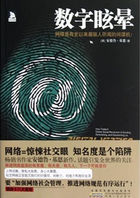That struggle, as you all know, arose out of the terrible question of slavery--and I must trust to your general knowledge of the history of that question to make intelligible the attitude and leadership of Lincoln as the champion of the hosts of freedom in the final contest. Negro slavery had been firmly established in the Southern States from an early period of their history. In 1619, the year before the Mayflower landed our Pilgrim Fathers upon Plymouth Rock, a Dutch ship had discharged a cargo of African slaves at Jamestown in Virginia: All through the colonial period their importation had continued. A few had found their way into the Northern States, but none of them in sufficient numbers to constitute danger or to afford a basis for political power. At the time of the adoption of the Federal Constitution, there is no doubt that the principal members of the convention not only condemned slavery as a moral, social, and political evil, but believed that by the suppression of the slave trade it was in the course of gradual extinction in the South, as it certainly was in the North. Washington, in his will, provided for the emancipation of his own slaves, and said to Jefferson that it "was among his first wishes to see some plan adopted by which slavery in his country might be abolished." Jefferson said, referring to the institution: "I tremble for my country when I think that God is just; that His justice cannot sleep forever,"--and Franklin, Adams, Hamilton, and Patrick Henry were all utterly opposed to it. But it was made the subject of a fatal compromise in the Federal Constitution, whereby its existence was recognized in the States as a basis of representation, the prohibition of the importation of slaves was postponed for twenty years, and the return of fugitive slaves provided for. But no imminent danger was apprehended from it till, by the invention of the cotton gin in 1792, cotton culture by negro labor became at once and forever the leading industry of the South, and gave a new impetus to the importation of slaves, so that in 1808, when the constitutional prohibition took effect, their numbers had vastly increased. From that time forward slavery became the basis of a great political power, and the Southern States, under all circumstances and at every opportunity, carried on a brave and unrelenting struggle for its maintenance and extension.
The conscience of the North was slow to rise against it, though bitter controversies from time to time took place. The Southern leaders threatened disunion if their demands were not complied with. To save the Union, compromise after compromise was made, but each one in the end was broken. The Missouri Compromise, made in 1820 upon the occasion of the admission of Missouri into the Union as a slave State, whereby, in consideration of such admission, slavery was forever excluded from the Northwest Territory, was ruthlessly repealed in 1854, by a Congress elected in the interests of the slave power, the intent being to force slavery into that vast territory which had so long been dedicated to freedom. This challenge at last aroused the slumbering conscience and passion of the North, and led to the formation of the Republican party for the avowed purpose of preventing, by constitutional methods, the further extension of slavery.
In its first campaign, in 1856, though it failed to elect its candidates; it received a surprising vote and carried many of the States. No one could any longer doubt that the North had made up its mind that no threats of disunion should deter it from pressing its cherished purpose and performing its long neglected duty. From the outset, Lincoln was one of the most active and effective leaders and speakers of the new party, and the great debates between Lincoln and Douglas in 1858, as the respective champions of the restriction and extension of slavery, attracted the attention of the whole country. Lincoln's powerful arguments carried conviction everywhere. His moral nature was thoroughly aroused his conscience was stirred to the quick. Unless slavery was wrong, nothing was wrong. Was each man, of whatever color, entitled to the fruits of his own labor, or could one man live in idle luxury by the sweat of another's brow, whose skin was darker? He was an implicit believer in that principle of the Declaration of Independence that all men are vested with certain inalienable rights the equal rights to life, liberty, and the pursuit of happiness. On this doctrine he staked his case and carried it. We have time only for one or two sentences in which he struck the keynote of the contest "The real issue in this country is the eternal struggle between these two principles--right and wrong--throughout the world.
They are the two principles that have stood face to face from the beginning of time, and will ever continue to struggle. The one is the common right of humanity, and the other the divine right of kings. It is the same principle in whatever shape it develops itself. It is the same spirit that says, "You work and toil and earn bread and I'll eat it."
He foresaw with unerring vision that the conflict was inevitable and irrepressible--that one or the other, the right or the wrong, freedom or slavery, must ultimately prevail and wholly prevail, throughout the country; and this was the principle that carried the war, once begun, to a finish.
One sentence of his is immortal:
"Under the operation of the policy of compromise, the slavery agitation has not only not ceased, but has constantly augmented.
In my opinion it will not cease until a crisis shall have been reached and passed. 'A house divided against itself cannot stand.' I believe this government cannot endure permanently half slave and half free. I do not expect the Union to be dissolved.















